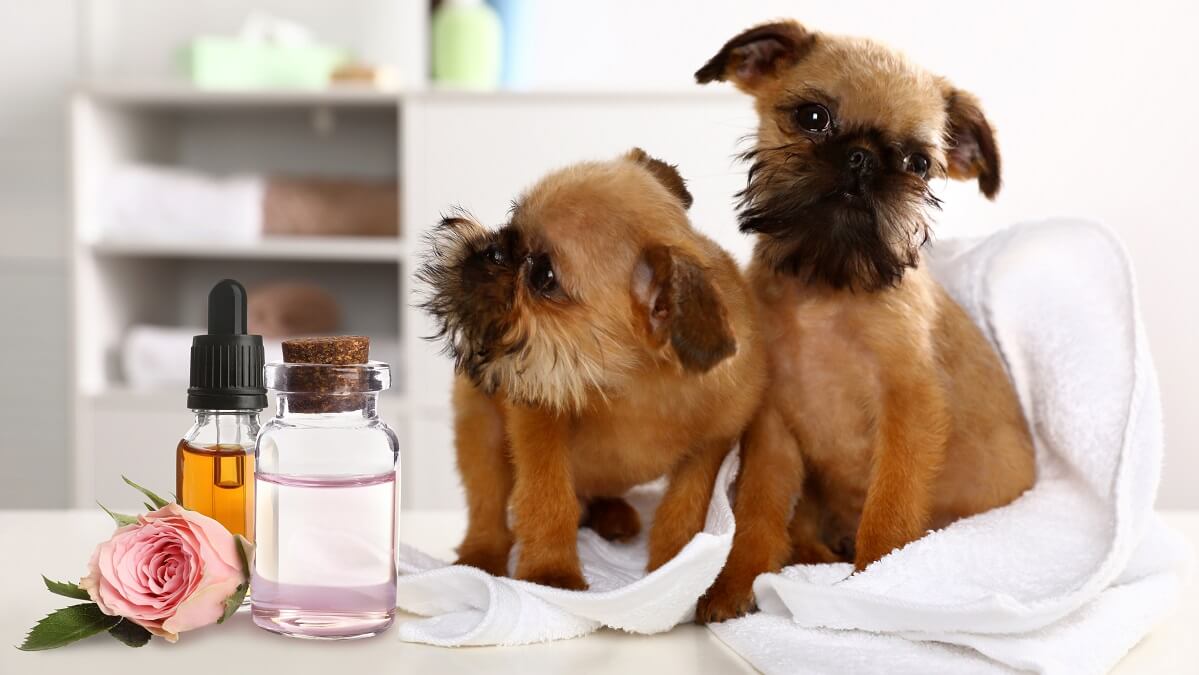Pet owners in pursuit of creating a happy, healthy home are often inspired to use scented candles or essential oils to mask the sometimes smelly odour of their furry friends.
But did you know that some essential oils can be a danger to your pets?
Before you light up the oil burner or refill that pretty diffuser, take a look at the list of essential oils that can be harmful to your family’s best friend. And, remember, ‘natural’ doesn’t always mean safe.
Essential oils and cats
Felines lack specific enzymes to enable them to properly process some of the compounds essential oils can contain – specifically phenols. Phenolic compounds occur naturally in plants and are highly concentrated to create essential oils, and that puts your cat at risk of liver failure.
Whether you use essential oils in candles, liquid potpourri sachets, room sprays, aromatherapy diffusers, or essential oil burners, it doesn’t make a difference. If you can smell it, it’s in the air – and that can lead to serious respiratory issues in cats. Kittens and older cats, or cats with liver or respiratory problems, should be kept far away from rooms where essential oil diffusers are used.
These essential oils are toxic to cats:
- cinnamon
- citrus
- clove
- eucalyptus oil
- lavender
- oil of sweet birch
- pennyroyal
- peppermint
- pine
- tea tree
- wintergreen
- ylang ylang
Essential oils and dogs
Dogs’ noses are exceptionally sensitive – and that’s important to remember whenever you spray perfumes or air fresheners, or use essential oils in candles, diffusers, burners, or as drops you may add to pillowcases, towels, sheets or your pet’s bedding. Using essential oils incorrectly around dogs can lead to behavioural changes, affect their central nervous system, or cause serious respiratory problems.
These essential oils are toxic for dogs:
- cinnamon
- citrus
- lavender
- pennyroyal
- peppermint
- pine
- tea tree
- sweet birch
- wintergreen
- ylang ylang
What about natural pet shampoo or flea treatments?
Natural flea and tick treatments made using essential oils present a complicated issue. There is a lack of scientific data to support the effectiveness of these products. And pet parents who choose to douse their beloved pooch in these natural alternatives to chemical-based treatments may be doing more harm than good.
According to experts at the Lort Smith Animal Hospital, it’s vital to consider these pet care facts:
- ingestion of essential oils, or dermal exposure to essential oils, may be an emergency. Contact your veterinarian immediately and provide as much information as you can about the product
- do not induce vomiting as there is a risk of aspiration and damage to the lungs
- if your animal has ingested or licked an essential oil, rinse their mouth carefully with water
- in cases of skin exposure, dermal decontamination can be performed, provided your pet is not showing any clinical signs yet. In general, oily or oil-soluble agents can be washed out using mild dishwashing liquid and warm water.
Clinical signs occur within minutes to two hours, depending on the type of oil, route of exposure, concentration and quantity the animal is exposed to. Look for:
- hypersalivation
- retching or gagging
- pawing at the mouth
- vocalisation
- local skin reactions
- skin ulcerations or chemical burns
- weakness
- lethargy
- depression
- uncoordinated gait (ataxia)
- tremors and/or convulsions
- hind limb or muscle weakness
- recumbency
- paralysis
- behavioural changes.
If you believe everything you read online, diluted rosemary, chamomile and lemongrass are, apparently, not a danger to pets – but to be safe, make sure you talk to your vet and research a brand that is safe (following the suggested directions for use). And don’t forget about other pets too, because birds and other animals who are breathing in the fragrance of essential oils in your home may also have a reaction.
If you suspect your pet is having a reaction to toxic essential oils, make sure you get them veterinary attention straight away.
And if you have been using products like this in your home, make sure you keep a close eye on your animal to see if there is a potential issue with their health.
Most importantly, though, stop using any toxic essential oils around them immediately. If you don’t want to create waste by throwing things away, think of someone you know whose household is pet free and doesn’t have any allergies. They’ll probably really appreciate your fragrant gifts.
Have any of your pets had problems with essential oils? Do you deliberately avoid them in your home? Why not share your experience in the comments section below?
Read more: The pros and cons of pet insurance

